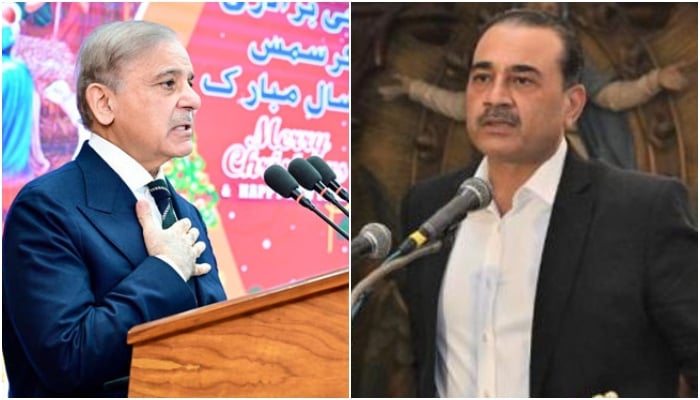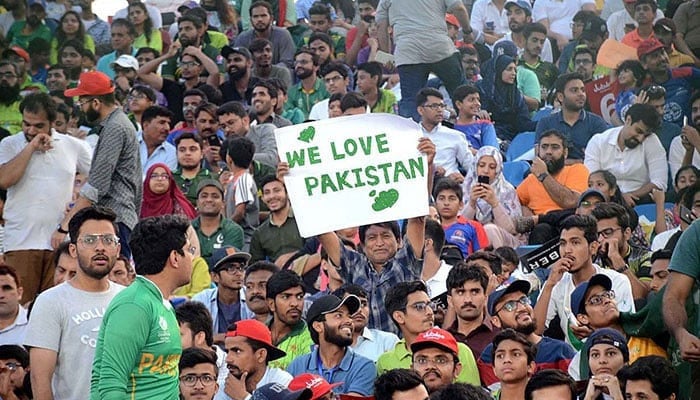US
NON-FICTION: PAKISTAN THROUGH THE AGES
字号+ Author:Smart News Source:Travel 2025-01-14 04:02:42 I want to comment(0)
Let’s begin this review with two evocative vignettes relevant even today. Tahir Kamran in Chequered Past, Uncertain Future: The History of Pakistan, notes: “In 2003, a Geneva magistrate had found [Benazir] Bhutto and her husband [Asif Zardari] guilty of money laundering… In 2006, Lord Justice Collins, an English judge, stated that there was a ‘reasonable prospect’ of… proving this claim.” To avoid a verdict, Zardari’s lawyers submitted documents from doctors claiming that he suffered from… dementia…When he became president, his aides were quick to say that “even if dementia were an irreversible illness, he had fully recovered.” Likewise, after the nuclear tests in May 1998, US sanctions aggravated Pakistan’s economic crisis, denying Nawaz Sharif the political dividend he was hoping for. To turn the narrative around, Sharif “announced that his family would restrict themselves to just one daily meal as part of their commitment to the austerity drive.” Deploying his ready wit, Kamran quickly adds, “…this declaration raised scepticism among many Pakistanis, given their prime minister’s strong affection for rich Punjabi dishes — the notion of him skipping a meal appeared highly improbable.” Laced with occasional witticism, Kamran’s voluminous 565-page tome is a delight to read on many counts. Covering ancient India to the present PDM government, the book’s scope spans over centuries and mirrors the author’s grip on history. Building on original research besides existing literature, his analysis is informed by a pluralist approach that takes into account the multiplicity of discourses. However, theoretical debates do not render the text inaccessible to a non-specialist readership. The mere sweep of a voluminous tome, encapsulating centuries of Indian and Pakistani history, inspires awe. But some of its theorisations of contemporary politics are problematic Indicting praetorianism (a term deployed for military dictatorships), this book pleads for democracy: “…democracy remains the only mechanism to cure political ills and to ensure good governance.” To this day, Gen Ayub Khan’s economic model is glorified by such politicians as Imran Khan. Kamran, however, claims that the economic progress in the 1960s “suggests that sustainable economic growth requires political liberalism and stability, which can only be achieved through democracy.” Why? Because “Democracy prevents the emergence of monopolies, ensuring that wealth is more equally distributed.” This idealist liberal notion can be debated. However, Kamran convincingly demonstrates that the Ayub-era growth was aimed at suppressing dissent and building a social base for the Ayub regime, contributing to crony capitalism and aggravating the national question by benefiting the Punjabi-Mohajir duopoly. Given the scope of the book and its richness in details, I will only explore the chapters on military regimes, besides the penultimate chapter on Imran Khan, because of the Pakistan Tehreek-i-Insaf’s (PTI) contemporaneity and my disagreements. Before examining praetorianism, Kamran flags the following causes impeding democracy’s evolution post-1947: (1) colonial legacy, because bureaucracy under colonialism was inclined to restrain representative institutions and post-colonial Pakistan maintained the same bureaucratic apparatus; (2) the state ideology pivoted around religion; (3) a populace largely “not well-versed in the concept of democracy” (this explanation smacks of elitism); and (4) delay in constitution-making. What brought the army into politics initially? Kamran’s explanation: “An existential crisis owing to Indian hostility, politicians’ inability to lead, [and the] army commanding respect of the common people. Finally, they arrived at the helm.” Once in power, Ayub was patronised by the USA. While the White House dispatched aid, Harvard sent economic advisers. Ayub’s ideological cover to deflower democracy was spiced with “desi orientalism.” Ayub thought Pakistanis were not yet ready for Western-style democracy. English historian Arnold Toynbee endorsed Ayub’s thesis by declaring Ayub’s Basic Democracies Order as a third way between communism and Western democracy. However, Kamran indicts Ayub on several counts, including his anti-woman politics. The Quaid’s sister, Fatima Jinnah, who had challenged Ayub was ridiculed as “Massi Mehroo” and a fatwa was obtained that a woman cannot head an Islamic state. While bureaucracy acquired more power, discrimination against Bengalis was institutionalised, paving the way for the debacle of 1971. Ayub also pioneered the farcical trend of presidential referendums. He was elected allegedly by 95.6 percent! His heir, Gen Yahya Khan, Kamran courageously states, should not be scapegoated alone for 1971 “since myriad currents and counter-currents wove the web of the course of history”, hence, “nuances and subtleties of the historical process” should be taken into account. While the chapter on Yahya familiarly explores the 1971 war, two aspects deserve special mention here. Firstly, Yahya initially weaponised the corruption discourse to gain legitimacy. Secondly, praetorianism was fortified, learning from the Ayub-era mistakes. The downfall of the Ayub dictatorship, the GHQ thought, was catalysed because it was a civil-military partnership. Regarding the 1971 war, Kamran slightly departs from usual discourses by briefly highlighting the possibility of a socialist revolution in united Bengal. However, citing the Bengali militant Mukti Bahini’s excesses against Biharis in East Pakistan and references to Sarmila Bose’s questionable scholarship on 1971 feeds into Pakistan’s statist discourse. Traumatic and brutal but short-lived, the Yahya regime did not find time to stage the farce of the referendum. However, Gen Ziaul Haq entertained himself with a referendum, allegedly receiving 97 percent votes in his favour. While Ayub legitimised his dictatorship in the name of modernisation, Zia deployed Wahabi-fied Islam to justify his rule of terror, consequently elevating the clergy’s status at the cost of minorities and women. Praetorianism took a new twist with the induction of retired and serving generals in civilian establishments. Between 1980-1985, 96 military men were inducted in the superior services permanently and another 115 on contract, while “retired military personnel were also given preference in roughly 33 percent of lower-ranked jobs within public agencies.” Gen Pervez Musharraf, also staged a referendum (97 percent allegedly voted for him). His efforts to constitute the National Security Council to institutionalise praetorianism was a process initiated by Zia, unsuccessfully pushed by Gen Jahangir Karamat in the 1990s and resulting in the hybrid regime from 2018 onwards. The notion of a hybrid regime brings us to Project PTI. The chapter on Imran Khan catalogues some of his shortcomings but delineates him as ‘Mr Clean’, even if some of his (nameless) cronies have been indicted. Implicitly, Imran is portrayed as an anti-imperialist victim of US-sponsored regime change. Kamran also compares Khan and Bhutto as populists. Kamran’s analysis of Khan is a weak link. Firstly, as Akbar Zaidi argues in Critical Pakistan Studies (2024), Imran’s politics requires theorisation anew. An imprecise and vague mainstream-liberal notion of populism is not merely flawed (PTI can’t be characterised as populist) but compounds confusion. A case in point is Kamran’s comparison between Bhutto and Imran as two faces of Pakistani populism. Bhutto was catapulted to power with the support of subaltern classes in the context of triumphant Third-Worldist socialism. Imran, staunchly neoliberal, gained power with a social base from a dangerously reactionary middle class in an era of post-truth and triumphant fundamentalism. Since I have explored regime-change and Imran’s fake anti-imperialism elsewhere (see ‘Anti-imperialism of Fools: The Case of Imran Khan’ International Viewpoint), here I will dispute his Mr Clean image in Kamran’s book. Imran managed this image because the establishment did not subject him to malicious campaigns, as was the case with his rivals. Secondly, benefiting from the rigged 2018 elections hardly affords a Mr Clean look to Imran. Thirdly, if the judiciary-media complex were not stuffed with pro-Imran forces, donning the Mr Clean image would have been impossible for Imran Khan. Lastly, the efforts to portray Imran as a democrat and builder of an Islamic welfare state (Riasat-i-Madina) is theoretically problematic. The notion of Riasat-i-Madina is an oxymoron. A welfare state is not merely about social protection but acknowledging an absolute equality of citizens, regardless of gender and faith. Imran Khan is neither anti-imperialist nor anti-establishment. I characterise the PTI as ‘popular authoritarianism’: a project that enjoys popular support but is, in essence, authoritarian. It is, ideologically, neoliberal and anti-enlightenment, hyper-conservative on social questions, anti-feminist, post-truth and radically opportunist. Still, disagreements notwithstanding, one should acknowledge the important contributions Kamran’s book makes. The mere sweep of the book, encapsulating centuries of history, inspires awe.
1.This site adheres to industry standards, and any reposted articles will clearly indicate the author and source;
 Related Articles
Related Articles-
Experts want intellectual property of Sindh registered
2025-01-14 02:49
-
In letter to Trump, US congressman raises alarm on foreign aid to Afghan Taliban
2025-01-14 02:25
-
Canada's Trudeau announces resignation amid political crisis
2025-01-14 02:13
-
In letter to Trump, US congressman raises alarm on foreign aid to Afghan Taliban
2025-01-14 02:12
 User Reviews
User Reviews Recommended Reads
Recommended Reads Hot Information
Hot Information- Health ministry in Gaza says conflict death toll at 43,508
- Trump seeks to delay hush money sentencing until after his presidential inauguration
- Tibet's Shigatse rocked by 6.8 magnitude earthquake: China quake centre
- Canada's Trudeau announces resignation amid political crisis
- Spencer Pratt requests to stream Heidi Montag’s 2010 album after home loss in LA fires
- Quake in China's Tibet kills 95 with tremors felt in Nepal, India
- Meta appoints UFC chief and Trump ally Dana White to board
- Tibet's Shigatse rocked by 6.8 magnitude earthquake: China quake centre
- Man dies as two-wheeler hits roadside pole
 Abont US
Abont US
Follow our WhatasApp account to stay updated with the latest exciting content












